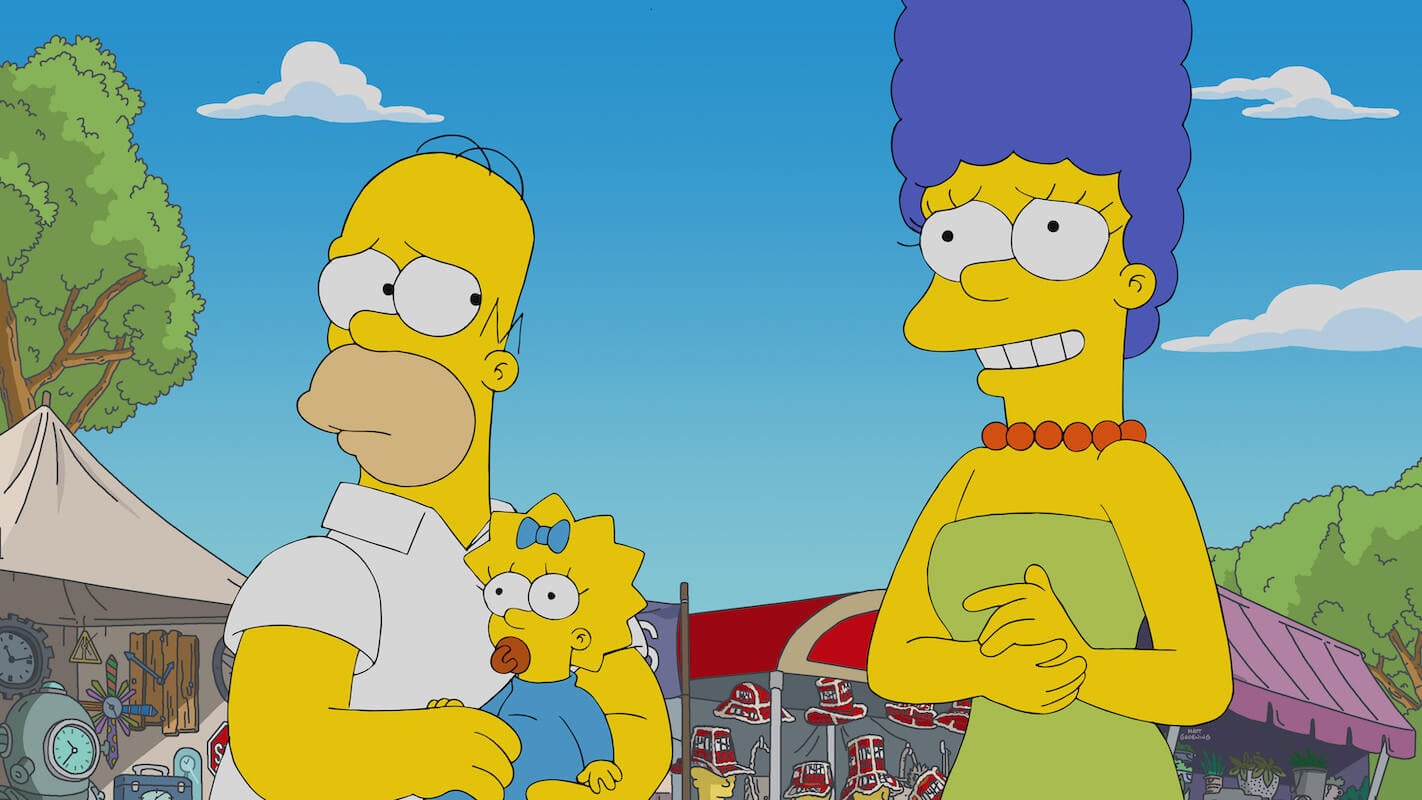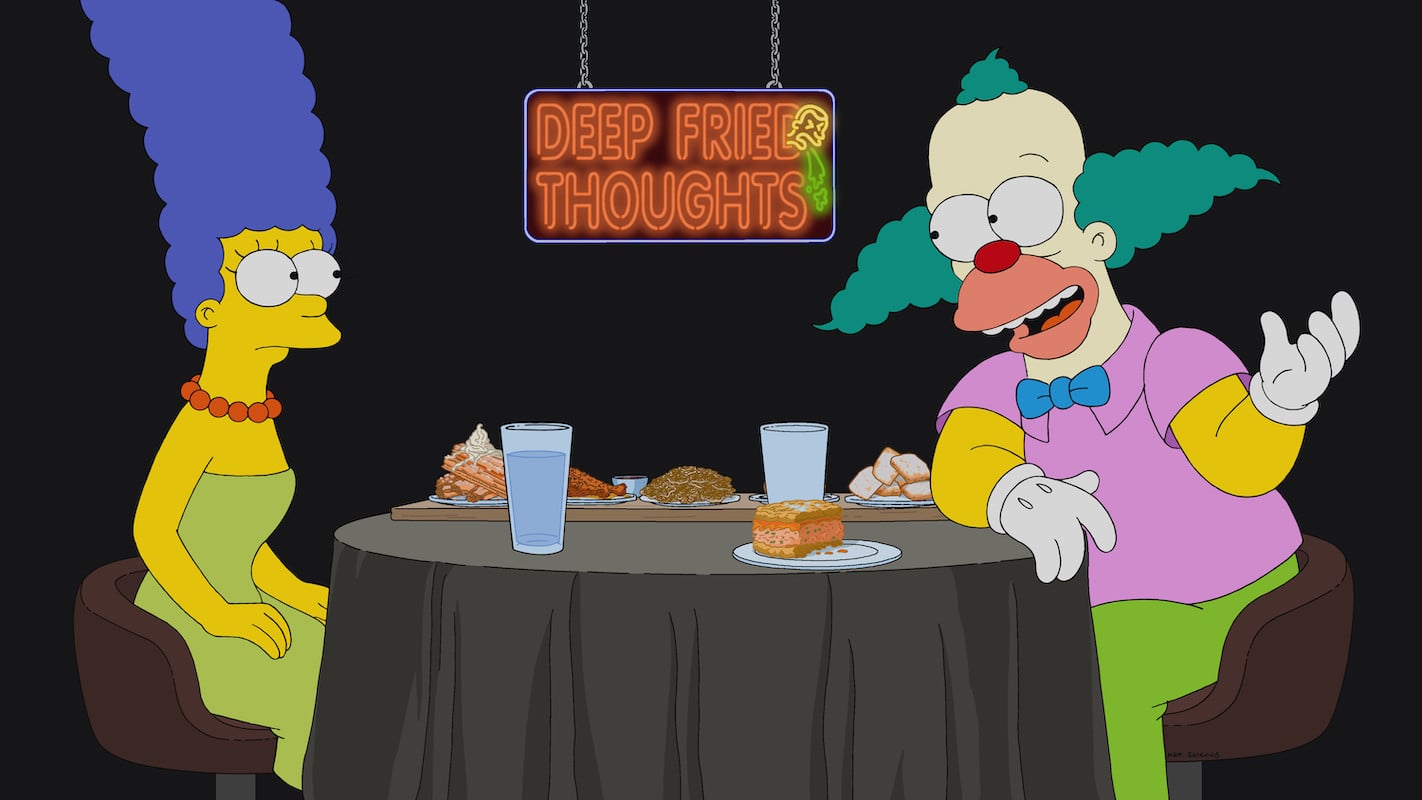
Why Later Seasons of ‘The Simpsons’ Rule
There is conventional wisdom that The Simpsons had a golden age. There’s no doubt seasons 3 through 9 were impeccable, but that doesn’t mean the next two decades were bad. The Simpsons necessarily experimented with its own format and evolved with the world. If you’ve spent the last 20 years lamenting that The Simpsons changed, you’re missing out on a lot of great comedy.

Fortunately, Showbiz Cheat Sheet has followed every episode of The Simpsons since 1989. As such, we can articulate exactly what the later seasons added to the show’s comedy tool belt, and how it still matches the heights they achieved in the ‘90s.
The Golden Age seasons of ‘The Simpsons’
When The Simpsons got their own show after Tracey Ullman Show shorts, it wasn’t instant inspiration. The first season was ostensibly an animated family sitcom, emphasizing Bart’s truancy and Homer’s incompetence most of all. The first season did introduce Springfield supporting characters like Krusty the Clown and Bleeding Gums Murphy who would pay off later.
With the Simpson family and the town of Springfield more developed, by season 3 the show started taking bold creative risks like Michael Jackson voicing a mental hospital patient, exploring Krusty’s Jewish heritage, and the first flashback about how Homer and Marge met.
Before the end of the ‘90s, episodes like “Marge vs. the Monorail,” “Bart Sells His Soul” and “El Viaje Misterioso de Nuestro Jomer” would explore city politics, religion and soul mates with an irreverent Simpsons twist. Selma’s brief marriage to Troy McClure led to the absurdly catchy Planet of the Apes musical, a new job opportunity turned out to be a Bond villain, and Lisa rejected Big Meat propaganda to become a vegetarian.
The world changed so ‘The Simpsons’ couldn’t stay the same season after season
The ‘90s era of The Simpsons included many writers who went on to other things, like Conan O’Brien and Brad Bird. Even John Swartzwelder’s last credited episode was in 2003. Al Jean remained the head writer and showrunner and Matt Selman graduated from writer to story editor to executive producer. But, most people don’t stay at the same job for 30 years, so any new writer was going to bring a fresh voice and new ideas.
Also, if The Simpsons still made episodes in 2023 like it was the ‘90s, they would not be considered any kind of Golden Age. The Simpsons can be topical in episodes like “Coming to Homerica” on immigration or this season’s “Hostile Kirk Place,” about revisionist history and threats on the education system.
Even if not directly topical, The Simpsons episodes reflect the world in which the Simpsons now exist. It’s a world with social media, YouTube, podcasts, and superhero movies. The Simpsons have not aged, but to pretend they still live in a world of landlines and analog activities would be ignoring the social observations that made those ‘90s episodes so great in the first place.
There are still evergreen episodes
A common criticism of the newer Simpsons episodes is that the topical episodes are less universal than so-called Golden Age episodes. Bart winning an elephant in a radio contest or Itchy & Scratchy Land robots coming to life could happen any time, although if those episodes were produced today, the radio contest might have to be updated and the robots might reflect the latest AI.
But, The Simpsons still does evergreen episodes. If it’s not every week, relax. There are over 700 episodes, at least half of which are evergreen. Recently, Marge’s stage musical, Homer and Duffman’s road trip, or Flanders joining the mob continue to give Springfield characters standalone adventures. Some episodes further explore the likes of Carl or Smithers in unprecedented ways.
The Simpsons now comments on prestige crime TV or internet vlogs, and viral videos can instigate a whole episode. Thank God The Simpsons is still around to mock the absurdity of modern life, because it would be even harder to live with all these intrusions without The Simpsons.




